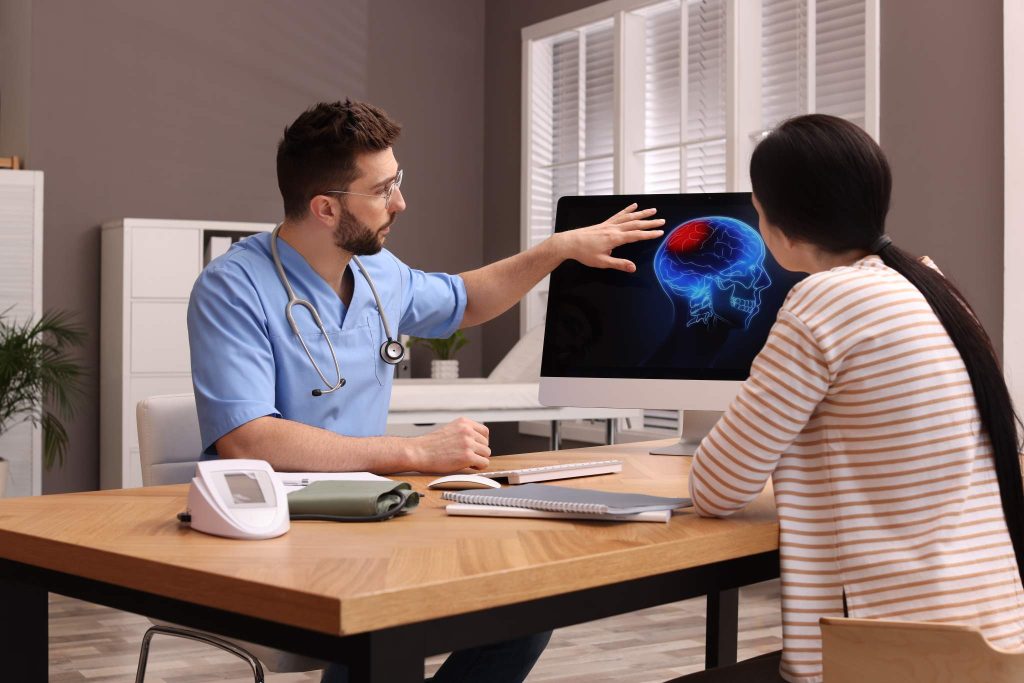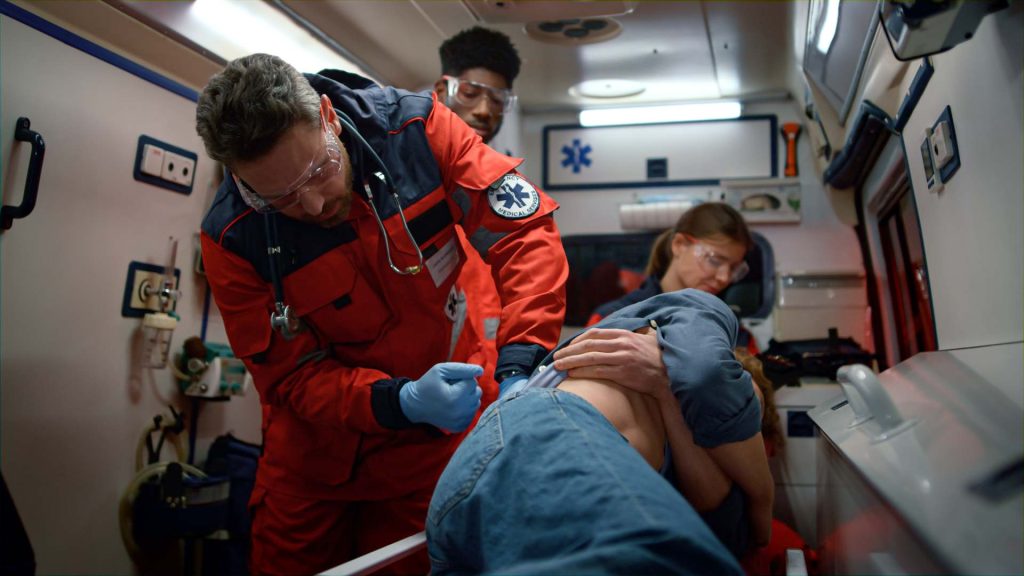If you’ve recently been in a sports accident or suffered a traumatic fall, you may be in a lot of pain and discomfort. A hard blow to the shoulder can cause a dislocation, which is actually the most frequently dislocated joint in your body. The shoulder joint has such a wide range of motion and the ball and socket style is more shallow than other joints, so a dislocation is more likely. If you believe you are experiencing dislocated shoulder symptoms after a hard fall or traumatic event, you should visit your doctor right away.
Symptoms of a Dislocated Shoulder
In some cases, people have difficulty determining whether they are experiencing a dislocated shoulder or a broken bone. That’s because both dislocations and fractures can affect your ability to move. When you dislocate your shoulder, it may be obvious because the shoulder could look deformed or like something is out of place. Swelling and bruising in the area are common, along with severe pain. Tingling, numbness, and weakness can also occur, especially when nearby nerves are also impacted by the injury. In many cases, you will not be able to move the joint.
Types of Shoulder Dislocations
There are three types of shoulder dislocations: anterior shoulder dislocation, posterior shoulder dislocation, and partial shoulder dislocation. The anterior shoulder dislocation is the most common type of shoulder dislocation and is typically caused by an acute injury to the shoulder, like a sports injury or a hard fall. Posterior shoulder dislocations are least common, are more likely to occur in men. Partial shoulder dislocations refer to when arm bone does not slip out of the shoulder socket completely. Your doctor will be able to determine what type of shoulder dislocation you are suffering from and develop the most appropriate treatment plan accordingly.
When to See a Doctor for a Dislocated Shoulder
You should always see a doctor for a dislocated joint, including a dislocated shoulder. Ignoring dislocated shoulder symptoms or trying to reset a dislocated joint on your own can result in more damage to the surrounding area and can even lead to chronic pain and development of arthritis in that joint. In most cases, you will seek treatment immediately because of the intensity of the pain and the inability to move your arm with a dislocated shoulder. Once the dislocation has occurred, try and stabilize the area and avoid moving your arm and shoulder as much as possible until you are able to see a doctor.
Diagnosing a Dislocated Shoulder
Your doctor will perform a physical exam of your shoulder and look for any deformity, swelling, and tenderness. Your doctor may request X-rays of the area to see get more details on any damage to the ball and socket joint and to rule out any fractures. In some cases, your doctor may even request a CT scan or MRI scan to get a more detailed look at the area and how the dislocation may have damaged nearby muscles, nerves, and other soft tissues.
Treatment Options for a Dislocated Shoulder
If you were treated in the emergency room or urgent care for a dislocated shoulder, you will likely need to follow up for continued treatment with an Atlanta orthopedic doctor. An orthopedic doctor can determine which treatment may be most appropriate for you based on how the dislocation occurred and how it has affected you. A closed reduction involves restoring the shoulder bones back to their proper joint position. Before manipulating the area, your doctor may wait for swelling to go down or prescribe medication to ease the pain during the procedure. Once the dislocated shoulder is reset, most of the pain you were experiencing may resolve almost immediately.
Immobilizing the area with a sling or splint helps keep the area still prevents you from moving your shoulder joint. This will give your shoulder time to heal from the trauma. During this time, swelling should go down, your pain should ease, and any damaged muscles or other soft tissues may also be addressed by your doctor. Your doctor may prescribe medication to help with the discomfort and pain as your shoulder heals. They may also recommend physical therapy or rehabilitation to restore your mobility and range of motion in the affected shoulder. In some cases where damage to nerves or blood vessels occurs, surgery may be necessary.
At AICA Orthopedics, our teams of multi-specialty doctors specialize in treating shoulder dislocation symptoms and can also help you prevent future dislocations. If you’ve suffered a dislocated shoulder recently then contact us today to get started on an individualized treatment plan that’s best for you.





